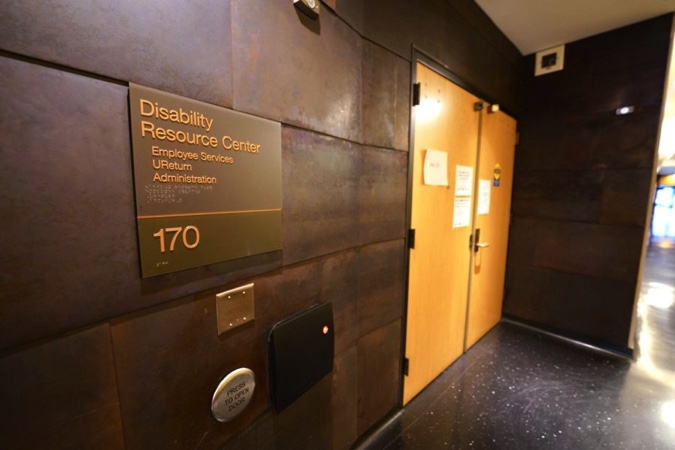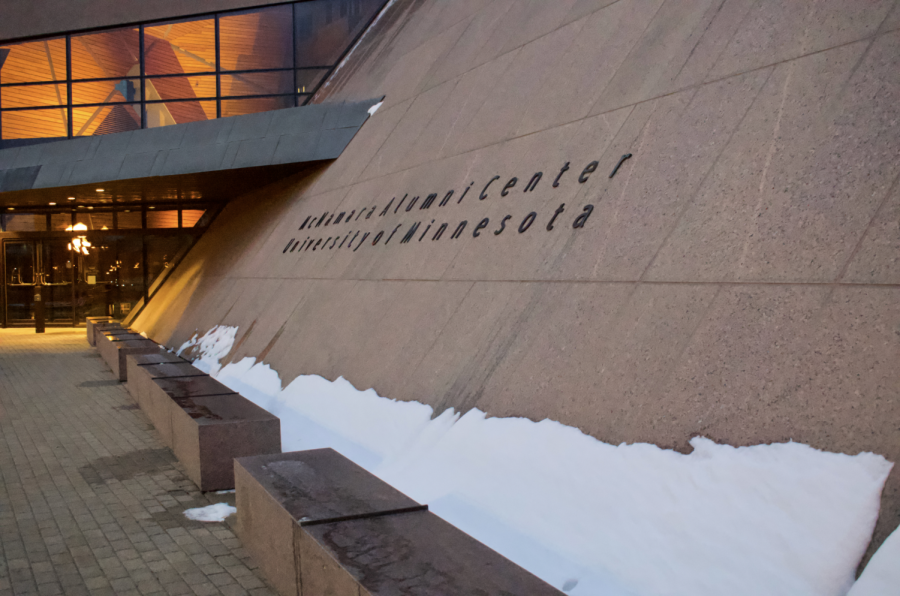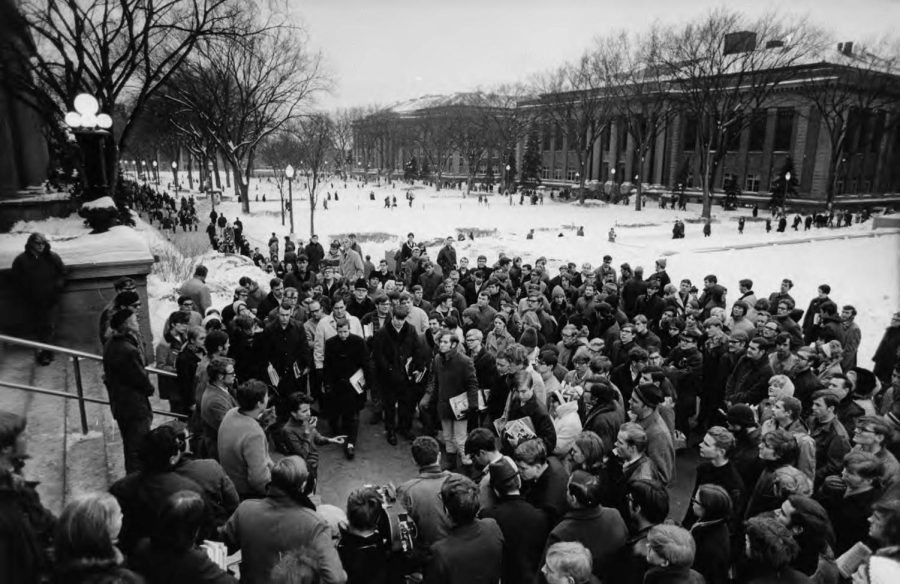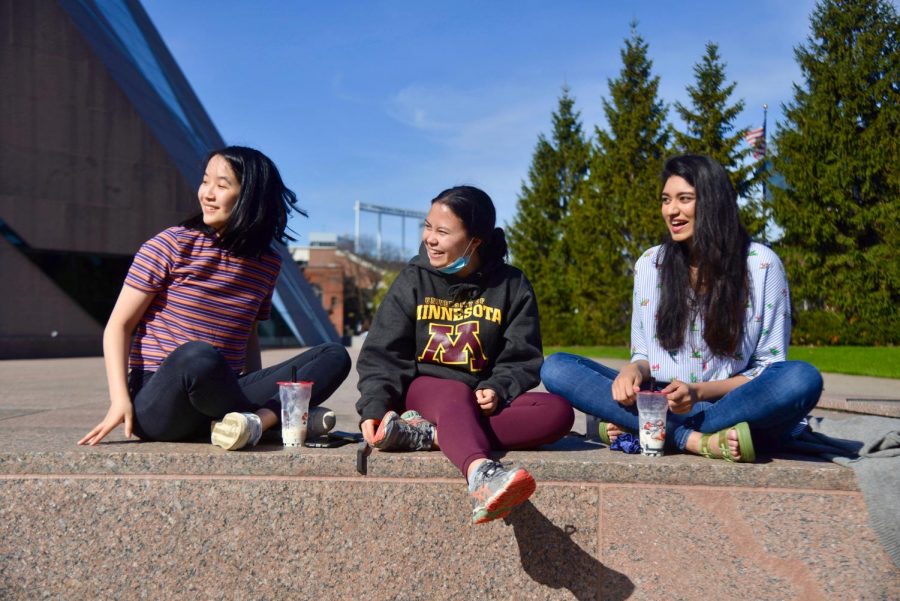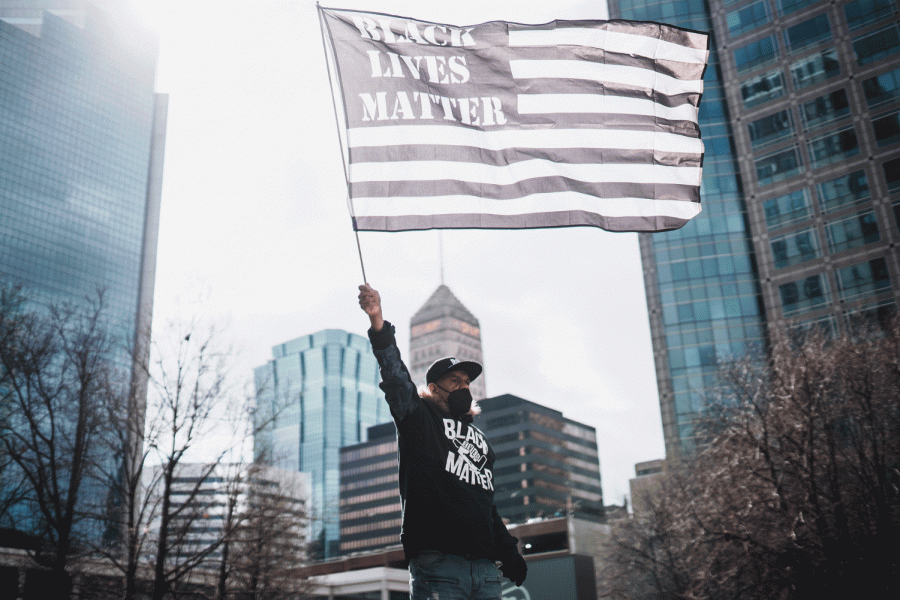With the recent upset election of President-elect Donald Trump, many on campus have expressed shock, worry, confusion and joy. Trump’s election has spurred nationwide demonstrations and sparked campus-wide conversations around moving forward in the wake of a bitter election season.
The Minnesota Daily interviewed dozens of University students to get feedback on the election and its implications. Here’s what they had to say:
Nick Nesbitt, biomedical engineering senior:
“On campus, basically everyone I’ve interacted with seems pretty despondent and hopeless. As far as national discourse goes, there seems to be an attitude of ‘we accepted Obama, why aren’t you accepting Trump?’ I don’t know what that’s based on. There seems to be no memory of how Republicans behaved over the last eight years. I think people are upset and scared.”
Anas Mohammed, electrical engineering sophomore:
“For some reason, I thought Hillary would win. I woke up the next day and was like ‘Oh Trump’ … One of my friends told me this: the silent majority isn’t silent anymore. What he meant by that is … some students are very nice, are friendly, are open-minded, and they elected someone who’s not.”
Ikran Haji, sociology senior:
“I was surprised. I didn’t really expect it … The day before I was like ‘we’re gonna have the first female president’ … He personally attacked every part of my identity as a Muslim black woman who’s also Somalian … it put me as a target. Nothing’s happened yet, but I’m more aware of it as of now [and] kind of expecting it to happen.”
Chaz Fenske, management information systems senior:
“It’s really silly to assume 45 to 50 percent of the population, or any person, is evil for voting. You never met that individual, you never cared about their life and never tried to understand their political opinion. Perhaps if we desired to understand them, instead of preaching at them from our echo chambers, politics would not be so polarizing.”
Ighedosa Ogbeide, psychology junior:
“Initially, I was surprised because … I just didn’t think Trump was that qualified … I just think that what he represented was not good … At the same time you know a lot of people do want to sling hate around and say that a majority of people who support Trump are racist, that’s not true … people are so quick to label and to judge. I really just think people are loyal to their party, and that’s what happened. It was still very surprising … personally, what Trump did, I think, was racist. There was some things that he did say about women that I believe would tell me not to vote for him, what he represented. Building a wall, man, that’s just horrible.”
Ryan Karau, kinesiology junior:
“One of the biggest concerns I have is the fact that policy made in the next four years will be made to deal with the now rather than the future, especially in relation to the environment. I am concerned that little will be done to protect our greatest resource — the earth. … I don’t want a future where my kids won’t be able to appreciate nature.”
Megan Niemuth, undecided sophomore:
“I hope it can’t be too bad, but my expectations aren’t that high either, so we’ll see … I voted for Clinton because I felt like the things that Trump were saying made him a.) not a candidate for president, and b.) an absolutely horrible person that I didn’t want to be in the highest office in the world.”
Jenna Miller, marketing and international business freshman:
“The fact that a lot of people’s opinions are getting scrutinized can be hard to handle because it makes me feel like my opinion isn’t validated … I understand the anger, and I understand the frustration. I understand the fear, too, but people need to realize that this country is founded on core principles that aren’t going to change based on this election … It puts a lot of importance on the silent majority, and it puts a lot of importance on voting.”
Connor Scheidler, entrepreneurial management freshman:
“I understand why some people voted for [Trump]. Personally, I don’t ever want to shame someone for their political beliefs. I think everyone is entitled to their political beliefs … I don’t like how people are saying, ‘If you voted for Trump you are immediately a racist or homophobic,’ or any of those malicious terms that are thrown around … I think I came into the election really unaware of what I wanted … I think both candidates had their downfalls, obviously, but I would’ve liked to see Hillary in office more, and I also thought it would be cool to have the first woman president considering how the times are going. I think she had a lot to offer.”
Emily Wydo, political science junior:
“I felt very stuck as an individual this political season because most of who I am is very much in the middle of two sides … I’ve come to realize that whatever side you stood on and whomever you cast your vote for, people just want to be heard … Right now, one side is very much in a state of fear while the other maybe, finally feels heard … I’ve spoken to those who voted red — [some] are my family. Trust me, they didn’t want to, but their way of life, their livelihood is literally dying and they saw a candidate who would maybe help change that, no matter how awful he seemed.”
Erika Romero, genetics junior:
“Since I …got to the US, oftentimes people always have had things [to say] about ‘oh immigration and stuff,’ most of the time people are really against it. So I wasn’t surprised that actually happened because sometimes when you are experiencing it, you see it is there, but sometimes people just don’t bring it out. For me, some stuff like that happens, I just ignore it. For me, I’m not a citizen here yet, so I’m kind of disappointed.”
Juliet Paulson, undecided freshman:
“I’ve looked forward to voting since I was six years old, and now that I’ve finally done it my first instinct is to be terrified. With everything that’s happened in both the national and local elections, I could be denied access to healthcare, become unable to afford my college education, and potentially even lose protections under the law that the LGBTQ community has fought long and hard to have … since Tuesday, I have resolved that I will not let this defeat me, that I will instead keep working for change and hope for the strength and unity to get through the next four years.”
Anna McAllister, first-year environmental health graduate student:
“I’m really disappointed [Clinton lost] … I don’t think I was that surprised. I think rural America is really angry. The country is pretty torn. I feel like people care about the same issues, but we have different schools of thought on how to deal with those issues. I’m really nervous. I don’t know what’s going to happen. I don’t know what’s still going to be there.”
Virna Cristina Lazo, math education masters student:
“My head and my heart have hurt since Tuesday … I decided to go to the protest because I needed to do something, I needed to say something … I am worried of a Republican-held White House, Senate and what it will mean for LGBTQ rights, women’s rights, foreign policy, immigration reform and the environment … On the other hand, I am terrified of Trump because he has chosen a racist and bigoted rhetoric to run his election on and 48 percent of America either agreed or had the privilege to disregard it. I feel small and vulnerable, even when I’m shouting.”

















